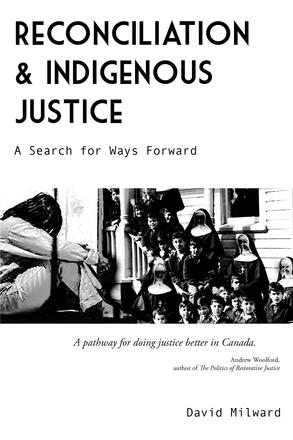
Reconciliation and Indigenous Justice
A Search for Ways Forward
Description
The horrors of the Indian residential schools are by now well-known historical facts, and they have certainly found purchase in the Canadian consciousness in recent years. The history of violence and the struggles of survivors for redress resulted in the Truth and Reconciliation Commission, which chronicled the harms inflicted by the residential schools and explored ways to address the resulting social fallouts. One of those fallouts is the crisis of Indigenous over-incarceration. While the residential school system may not be the only harmful process of colonization that fuels Indigenous over-incarceration, it is arguably the most critical factor. It is likely that the residential school system forms an important part of the background of almost every Indigenous person who ends up incarcerated, even those who did not attend the schools. The legacy of harm caused by the schools is a vivid and crucial link between Canadian colonialism and Indigenous over-incarceration. Reconciliation and Indigenous Justice provides an account of the ongoing ties between the enduring trauma caused by the residential schools and Indigenous over-incarceration.
Reviews
“David Milward provides a clear-sighted and accessible engagement with the challenge of Indigenous over-incarceration and the continuing legacy of Indian Residential Schools, using compelling examples to present a pathway for doing justice better in Canada.”
- Andrew Woolford, author of The Politics of Restorative Justice and Professor, Department of Sociology and Criminology University of Manitoba
“Essential reading for anyone who wants to understand how the Canadian criminal justice system fails Indigenous people and how Indigenous Justice can, under the right conditions, be fairer, less expensive and more effective.”
- Kent Roach, Professor of Law, University of Toronto